LETTER 4
您可以在百度里搜索“The Works of Charles and Mary Lamb — Volume 5 艾草文学(www.321553.xyz)”查找最新章节!
LETTER 4
(Apparently a continuation of a letter the first part of which is missing)
CHARLES LAMB TO S. T. COLERIDGE
[Begun] Monday Night [June 13, 1796].
UNFURNISHED at present with any sheet-filling subject, I shall continue my letter gradually and journal-wise. My second thoughts entirely coincide with your comments on "Joan of Arc," and I can only wonder at my childish judgment which overlooked the 1st book and could prefer the 9th: not that I was insensible to the soberer beauties of the former, but the latter caught me with its glare of magic,—the former, however, left a more pleasing general recollection in my mind. Let me add, the 1st book was the favourite of my sister—and I now, with Joan, often "think on Domremi and the fields of Arc." I must not pass over without acknowledging my obligations to your full and satisfactory account of personifications. I have read it again and again, and it will be a guide to my future taste. Perhaps I had estimated Southey's merits too much by number, weight, and measure. I now agree completely and entirely in your opinion of the genius of Southey. Your own image of melancholy is illustrative of what you teach, and in itself masterly. I conjecture it is "disbranched" from one of your embryo "hymns." When they are mature of birth (were I you) I should print 'em in one separate volume, with "Religious Musings" and your part of the "Joan of Arc." Birds of the same soaring wing should hold on their flight in company. Once for all (and by renewing the subject you will only renew in me the condemnation of Tantalus), I hope to be able to pay you a visit (if you are then at Bristol) some time in the latter end of August or beginning of September for a week or fortnight; before that time, office business puts an absolute veto on my coming.
"And if a sigh that speaks regret of happier times appear,
A glimpse of joy that we have met shall shine and dry the tear."
Of the blank verses I spoke of, the following lines are the only tolerably complete ones I have writ out of not more than one hundred and fifty. That I get on so slowly you may fairly impute to want of practice in composition, when I declare to you that (the few verses which you have seen excepted) I have not writ fifty lines since I left school. It may not be amiss to remark that my grandmother (on whom the verses are written) lived housekeeper in a family the fifty or sixty last years of her life—that she was a woman of exemplary piety and goodness—and for many years before her death was terribly afflicted with a cancer in her breast which she bore with true Christian patience. You may think that I have not kept enough apart the ideas of her heavenly and her earthly master but recollect I have designedly given in to her own way of feeling—and if she had a failing, 'twas that she respected her master's family too much, not reverenced her Maker too little. The lines begin imperfectly, as I may probably connect 'em if I finish at all,—and if I do, Biggs shall print 'em in a more economical way than you yours, for (Sonnets and all) they won't make a thousand lines as I propose completing 'em, and the substance must be wire-drawn.
Tuesday Evening, June 14, 1796.
I am not quite satisfied now with the Chatterton, and with your leave will try my hand at it again. A master joiner, you know, may leave a cabinet to be finished, when his own hands are full. To your list of illustrative personifications, into which a fine imagination enters, I will take leave to add the following from Beaumont and Fletcher's "Wife for a Month;" 'tis the conclusion of a description of a sea-fight;—"The game of death was never played so nobly; the meagre thief grew wanton in his mischiefs, and his shrunk hollow eyes smiled on his ruins." There is fancy in these of a lower order from "Bonduca;"—"Then did I see these valiant men of Britain, like boding owls creep into tods of ivy, and hoot their fears to one another nightly." Not that it is a personification; only it just caught my eye in a little extract book I keep, which is full of "ations from B. and F. in particular, in which authors I can't help thinking there is a greater richness of poetical fancy than in any one, Shakspeare excepted. Are you acquainted with Massinger? At a hazard I will trouble you with a passage from a play of his called "A Very Woman." The lines are spoken by a lover (disguised) to his faithless mistress. You will remark the fine effect of the double endings. You will by your ear distinguish the lines, for I write 'em as prose. "Not far from where my father lives, a lady, a neighbour by, blest with as great a beauty as nature durst bestow without undoing, dwelt, and most happily, as I thought then, and blest the house a thousand times she dwelt in. This beauty, in the blossom of my youth, when my first fire knew no adulterate incense, nor I no way to flatter but my fondness; in all the bravery my friends could show me, in all the faith my innocence could give me, in the best language my true tongue could tell me, and all the broken sighs my sick heart lend me, I sued and served; long did I serve this lady, long was my travail, long my trade to win her; with all the duty of my soul I SERVED HER." "Then she must love." "She did, but never me: she could not love me; she would not love, she hated,—more, she scorn'd me; and in so poor and base a way abused me for all my services, for all my bounties, so bold neglects flung on me."—"What out of love, and worthy love, I gave her (shame to her most unworthy mind,) to fools, to girls, to fiddlers and her boys she flung, all in disdain of me." One more passage strikes my eye from B. and F.'s "Palamon and Arcite." One of 'em complains in prison: "This is all our world; we shall know nothing here but one another, hear nothing but the clock that tells our woes; the vine shall grow, but we shall never see it," &c. Is not the last circumstance exquisite? I mean not to lay myself open by saying they exceed Milton, and perhaps Collins, in sublimity. But don't you conceive all poets after Shakspeare yield to 'em in variety of genius? Massinger treads close on their heels; but you are most probably as well acquainted with his writings as your humble servant. My "ations, in that case, will only serve to expose my barrenness of matter. Southey in simplicity and tenderness, is excelled decidedly only, I think, by Beaumont and F. in his [their] "Maid's Tragedy" and some parts of "Philaster" in particular, and elsewhere occasionally; and perhaps by Cowper in his "Crazy Kate," and in parts of his translation, such as the speeches of Hecuba and Andromache. I long to know your opinion of that translation. The Odyssey especially is surely very Homeric. What nobler than the appearance of Phoebus at the beginning of the Iliad—the lines ending with "Dread sounding, bounding on the silver bow!"
I beg you will give me your opinion of the translation; it afforded me high pleasure. As curious a specimen of translation as ever fell into my hands, is a young man's in our office, of a French novel. What in the original was literally "amiable delusions of the fancy," he proposed to render "the fair frauds of the imagination!" I had much trouble in licking the book into any meaning at all. Yet did the knave clear fifty or sixty pounds by subscription and selling the copyright. The book itself not a week's work! To-day's portion of my journalising epistle has been very dull and poverty-stricken. I will here end.
Tuesday Night.
I have been drinking egg-hot and smoking Oronooko (associated circumstances, which ever forcibly recall to my mind our evenings and nights at the Salutation); my eyes and brain are heavy and asleep, but my heart is awake; and if words came as ready as ideas, and ideas as feelings, I could say ten hundred kind things. Coleridge, you know not my supreme happiness at having one on earth (though counties separate us) whom I can call a friend. Remember you those tender lines of Logan?—
"Our broken friendships we deplore,
And loves of youth that are no more;
No after friendships e'er can raise
Th' endearments of our early days,
And ne'er the heart such fondness prove,
As when we first began to love."
I am writing at random, and half-tipsy, what you may not equally understand, as you will be sober when you read it; but my sober and my half-tipsy hours you are alike a sharer in. Good night.
"Then up rose our bard, like a prophet in drink,
Craigdoroch, thou'lt soar when creation shall sink."
BURNS.
Thursday [June 16, 1796].
I am now in high hopes to be able to visit you, if perfectly convenient on your part, by the end of next month—perhaps the last week or fortnight in July. A change of scene and a change of faces would do me good, even if that scene were not to be Bristol, and those faces Coleridge's and his friends. In the words of Terence, a little altered, "Taedet me hujus "idiani mundi." I am heartily sick of the every-day scenes of life. I shall half wish you unmarried (don't show this to Mrs. C.) for one evening only, to have the pleasure of smoking with you, and drinking egg-hot in some little smoky room in a pot-house, for I know not yet how I shall like you in a decent room, and looking quite happy. My best love and respects to Sara notwithstanding.
Yours sincerely,
CHARLES LAMB.
[Coleridge's image of melancholy will be found in the lines "Melancholy—a fragment." It was published in Sibylline Leaves, 1817, and in a note Coleridge said that the verses were printed in the Morning Chronicle in 1794. They were really printed in the Morning Post, December 12, 1797. Coleridge had probably sent them to Lamb in MS. The "hymns" came to nothing.
"The following lines." Lamb's poem "The Grandame" was presumably included in this letter. See Vol. IV. Mary Field, Lamb's grandmother, died July 31, 1792, aged seventy-nine, and was buried in Widford churchyard. She had been for many years housekeeper in the Plumer family at Blakesware. On William Plumer's moving to Gilston, a neighbouring seat, in 1767, she had sole charge of the Blakesware mansion, where her grandchildren used to visit her. Compare Lamb's Elia essays "Blakesmoor in H——shire" and "Dream-Children,"
N. Biggs was the printer of Coleridge's Poems, 1797.
Lamb had begun his amendment of Coleridge's "Monody on the Death of Chatterton" in his letter of June 10. Coleridge's illustrative personifications, here referred to, are in that poem. The extract book from which Lamb copied his "ations from Beaumont and Fletcher and Massinger was, he afterwards tells us, destroyed; but similar volumes, which he filled later, are preserved. Many of his extracts he included in his Dramatic Specimens.
Writing to Charles Lloyd, sen., in 1809, Lamb says of Cowper as a translator of Homer that he "delays you … walking over a Bowling Green."
Canon Ainger possessed a copy of the book translated by Lamb's
fellow-clerk. It was called Sentimental Tablets of the Good Pamphile.
"Translated from the French of M. Gorjy by P. S. Dupuy of the East India
House, 1795." Among the subscribers' names were Thomas Bye (5 copies),
Ball, Evans, Savory (2 copies), and Lamb himself.] The Works of Charles and Mary Lamb — Volume 5




